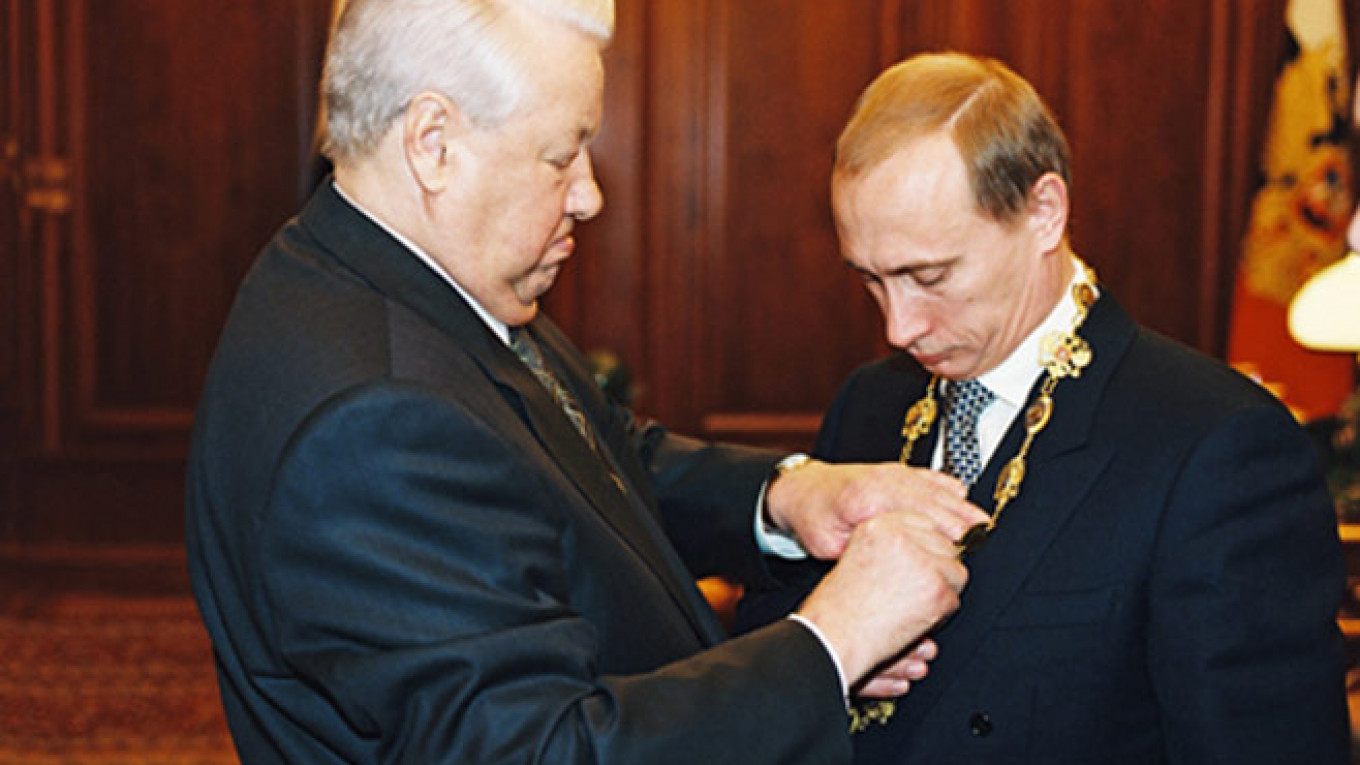Let's recall the events of these days 16 years ago.
On Aug. 9, 1999, Yeltsin appointed Vladimir Putin acting head of the Russian government. On the same day, in a televised speech, Yeltsin named Putin as his successor. A week later, on Aug. 16, the parliament confirmed him as the new prime minister, making his role as head of government official. An unwell Yeltsin completely handed over the reins of government to Putin.
That was when security forces came to power in Russia. Since that time, they have destroyed civil society and freedom of the press, taken over and destroyed independent business, eliminated elections, and subordinated under themselves and corrupted all spheres of life, from the courts system to schools, making this country a global outcast.
After seizing power, the security forces got right down to business. Military actions were started in Dagestan, which then grew into a full-scale war in Chechnya.
As a result of this war, nearly every large population center in Chechnya was utterly demolished, including the capital city of Grozny, and about 6,000 Russian soldiers were killed. According to Amnesty International, 25,000 civilians died.
Within two weeks of Putin's election as prime minister, bombings of Russian buildings began, including two high-rise apartment buildings in Moscow.
This bloody series of bombings was stopped only on Sept. 22, when residents of a building in Ryazan detained a group of people they watched take several sacks (which they assumed contained explosives) from a car with fake license plates into the basement of that building. A detonator was attached to the sacks, with a timer set for 5:30 a.m.
The next day Interior Minister Vladimir Rushailo announced that the bombing of a building in Ryazan had been successfully prevented.
Soon after, however, FSB head Nikolai Patrushev announced that the event had been an FSB test. Former FSB employee Alexander Litvinenko wrote a book about the events called "The FSB Blows Up Russia," (released in English as "Blowing Up Russia: Terror From Within") and was later killed in London.
There may be different theories about these events, but some facts remain the same: the feeling of horror that took over the country in the first weeks and months of Putin's tenure as prime minister actually helped improve his ratings.
Yeltsin didn't wait out the end of his presidential term (summer of 2000), stepping down on Dec. 31, 1999. In accordance with the Constitution, the prime minister began to carry out the presidential functions. That is, Putin practically became president before he was elected to the position.
We all remember what came after the end of the two terms allowed him by the Constitution. As a formality, he put Dmitry Medvedev in his place, but in actuality continued to govern the country as before. Putin didn't even move out of the presidential residence at Novo-Ogaryovo. He just renamed it the "residence of the head of government" for several years.
After Medvedev's time came to an end, and Putin returned to the office of president, the residence was once again "presidential."
Medvedev performed an important service for Putin. He managed to amend the Constitution to extend presidential terms from four years to six. This means that Putin plans to be legally in power for a total of 24 years: two four-year terms, one four-year quasi-term, and two more six-year terms.
We can no longer dream of the departure of the security forces. They won't leave. Like a cancerous tumor, metastasizing into all the organs of the body, they will only die now when the entire organism does. This tumor is no longer operable, and there is no more hope for recovery.
Andrei Malgin is a journalist, literary critic and blogger.
A Message from The Moscow Times:
Dear readers,
We are facing unprecedented challenges. Russia's Prosecutor General's Office has designated The Moscow Times as an "undesirable" organization, criminalizing our work and putting our staff at risk of prosecution. This follows our earlier unjust labeling as a "foreign agent."
These actions are direct attempts to silence independent journalism in Russia. The authorities claim our work "discredits the decisions of the Russian leadership." We see things differently: we strive to provide accurate, unbiased reporting on Russia.
We, the journalists of The Moscow Times, refuse to be silenced. But to continue our work, we need your help.
Your support, no matter how small, makes a world of difference. If you can, please support us monthly starting from just $2. It's quick to set up, and every contribution makes a significant impact.
By supporting The Moscow Times, you're defending open, independent journalism in the face of repression. Thank you for standing with us.
Remind me later.


